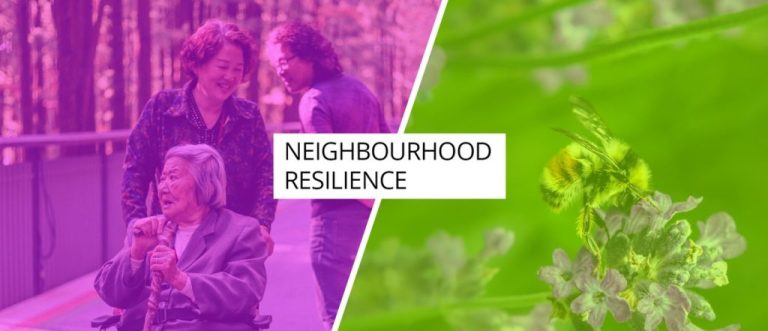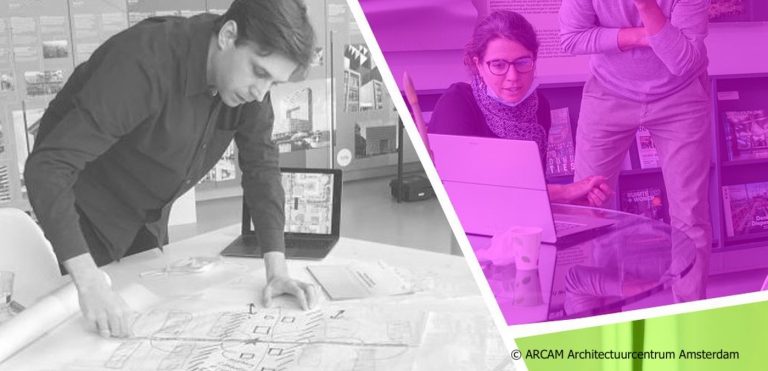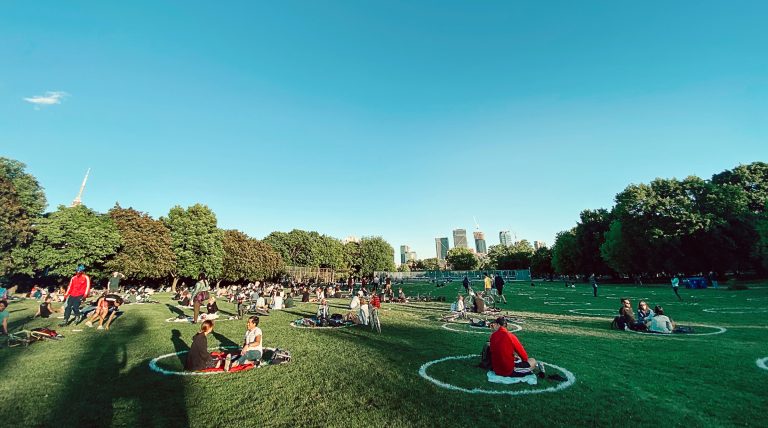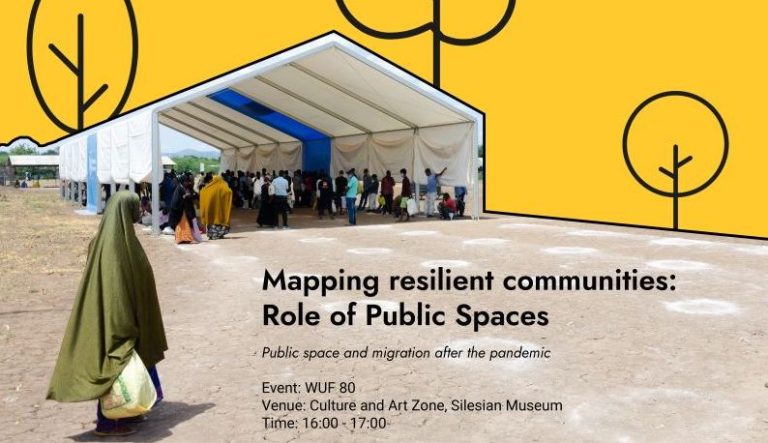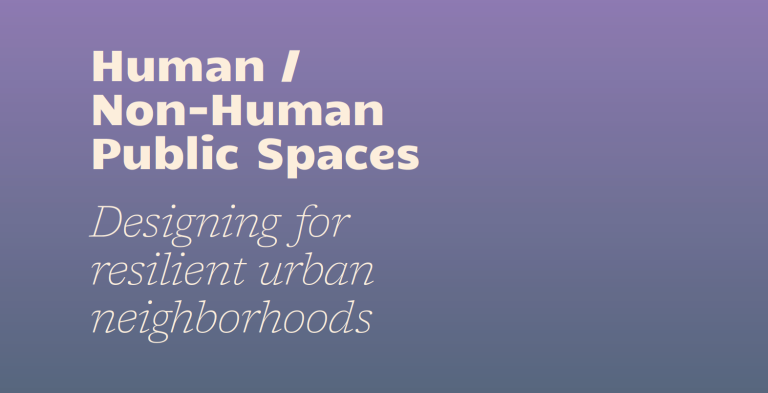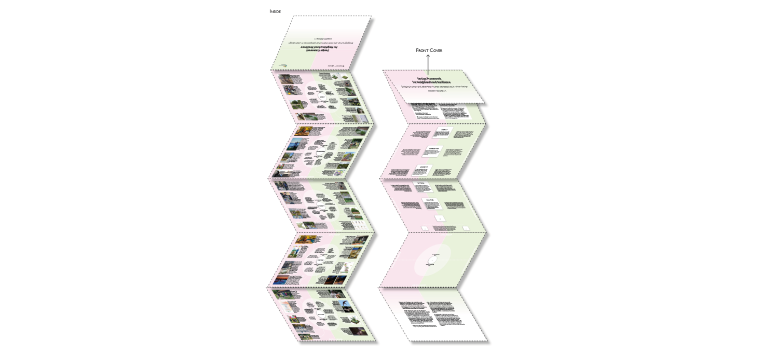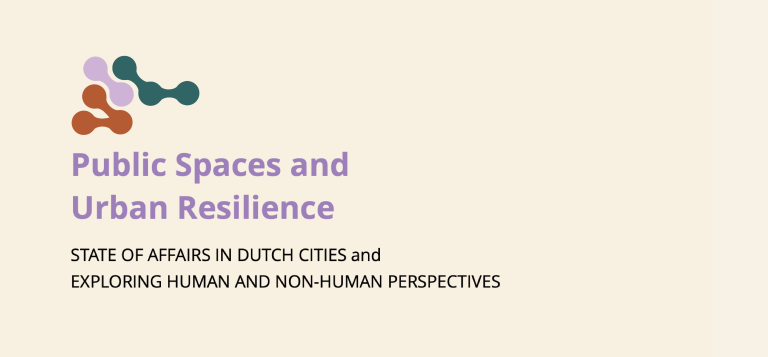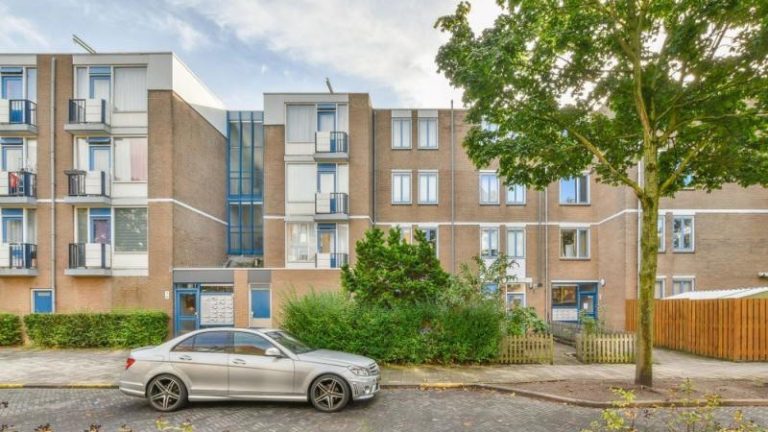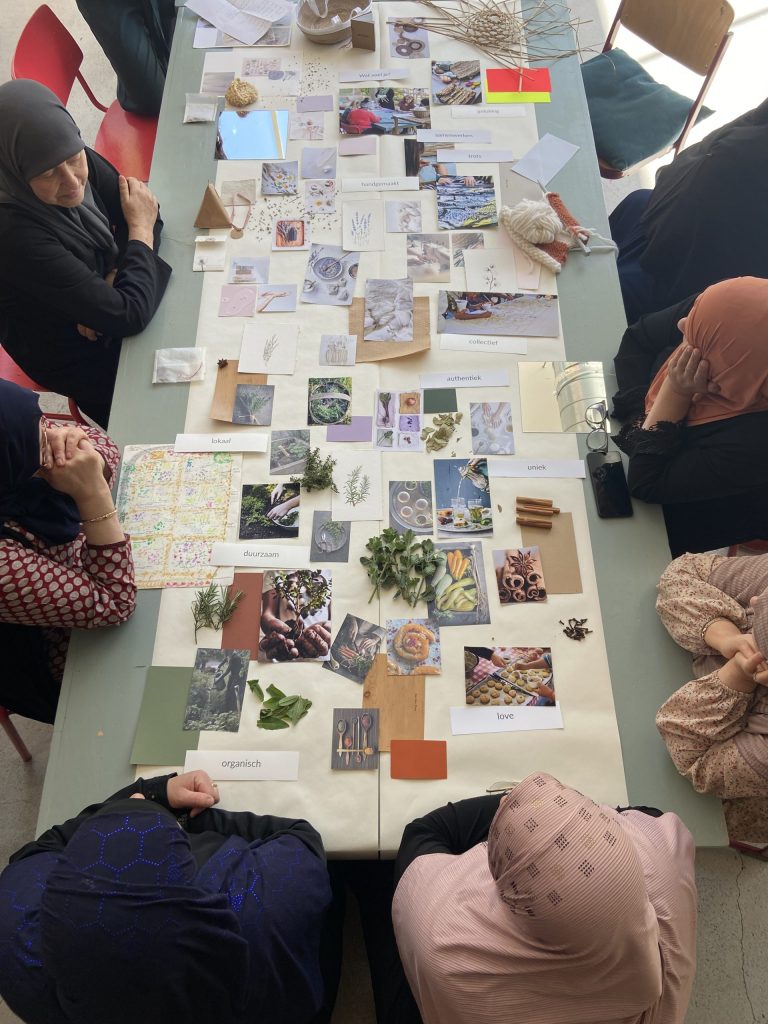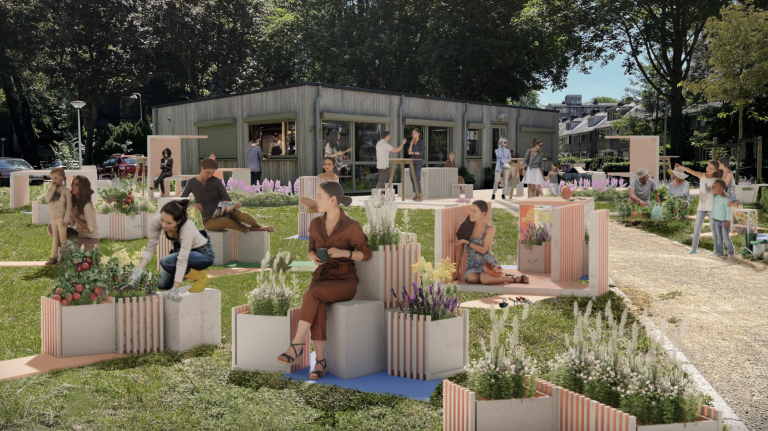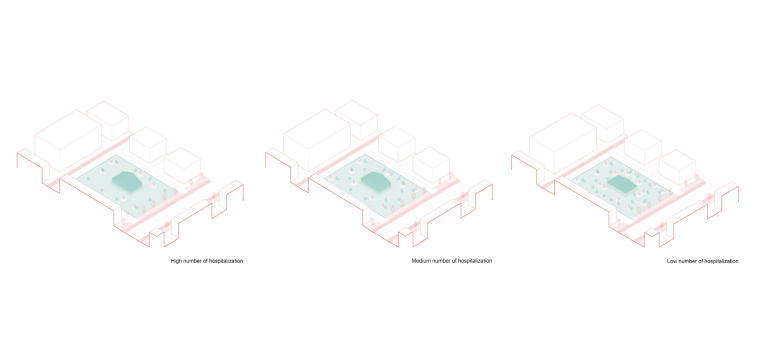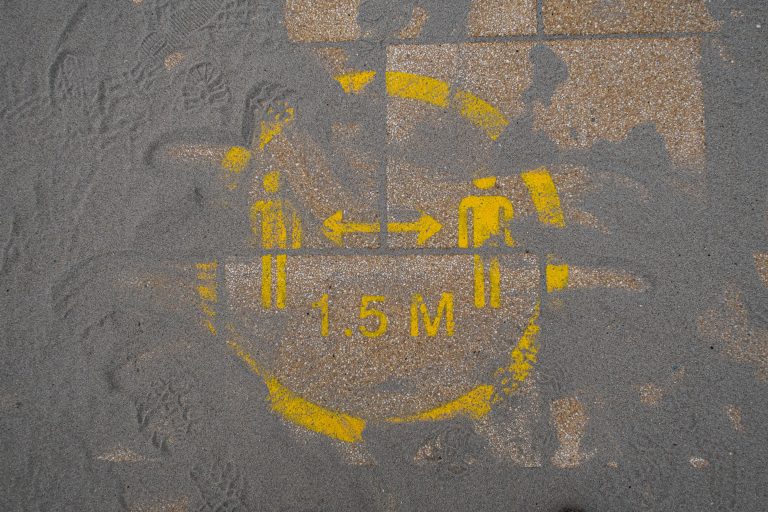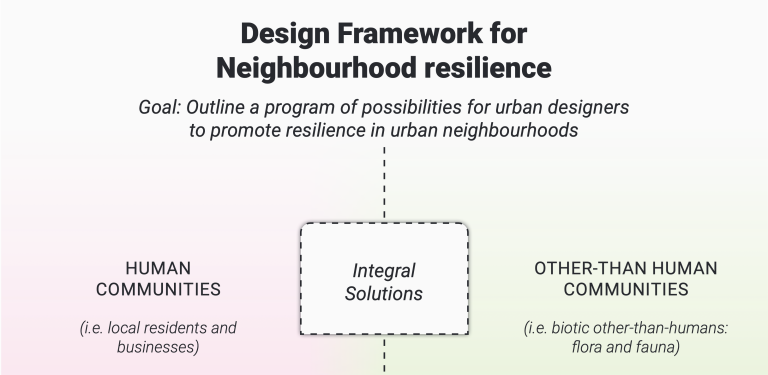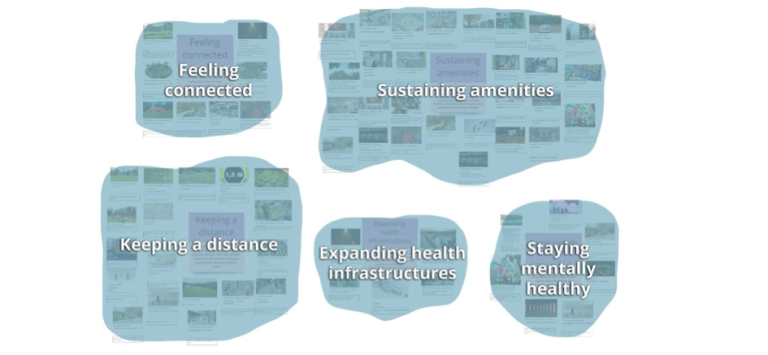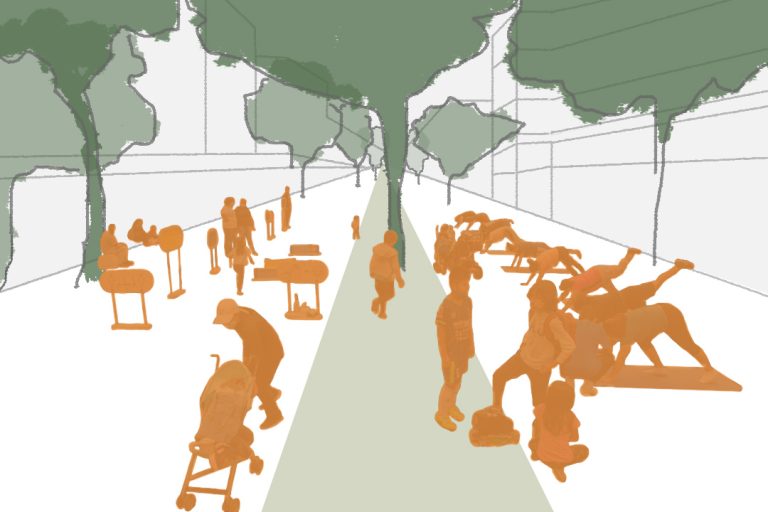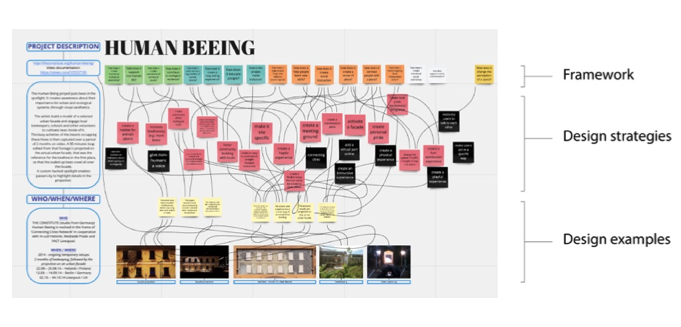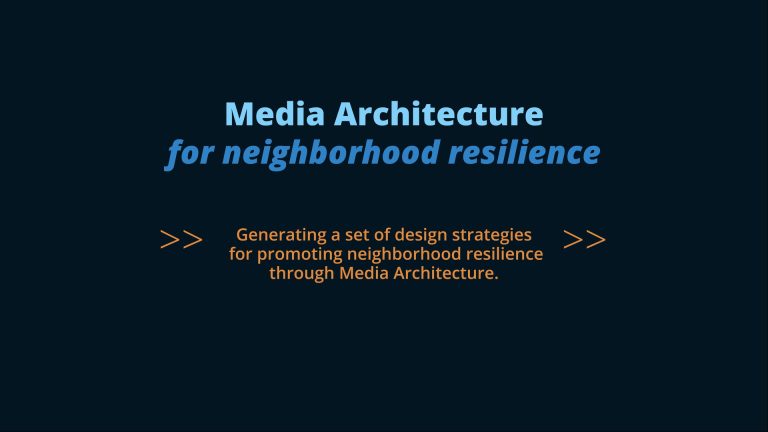From Prevention to Resilience: Designing Public Spaces in Times of Pandemics is a 2-year research project (2020-2022) that aimed to develop insights and tools for (urban) designers, policymakers and other professionals to contribute to more resilient cities and neighbourhoods. In particular, we investigated how design interventions in public space can contribute to strengthening social and ecological resilience.
Through a combination of desk research, expert sessions with an international community of practice and research-through-design interventions, this project aimed to go beyond the purely practical prevention approach and explore how measures in response to the COVID-19 pandemic can be linked to making neighbourhoods more resilient, both socially and ecologically.
During the research process, we had the opportunity to explore different perspectives on this topic, which resulted in the outputs listed below:
- A Design Framework for Neighbourhood Resilience with which the effective principles of digital and physical interventions for the 1.5-meter society at the neighbourhood level can be analysed and designed with regard to their potential for social and ecological resilience;
- A database with worldwide examples of how (urban) designers have responded to the COVID-19 pandemic and the problems they addressed through (proposed) public space and civic engagement interventions;
- Three Design Cases, which explored how can urban designers take action toward resilience for Post-COVID neighbourhoods by using the design framework we created on a (real-life) design challenge in Amsterdam;
- A number of resources, which includes academic and professional publications, as well as a Livecast series where we were joined by various experts to discuss design perspectives in which social and ecological issues, at the neighbourhood level, are addressed in an integral way.
All the main outputs and findings from this research mentioned above are featured on this website, which we hope can serve as a relevant tool for scholars and designers in the Netherlands and worldwide.
This research project was financed by the ZonMw subsidy round: ‘COVID 19 Maatschappelijke Dynamiek’.

